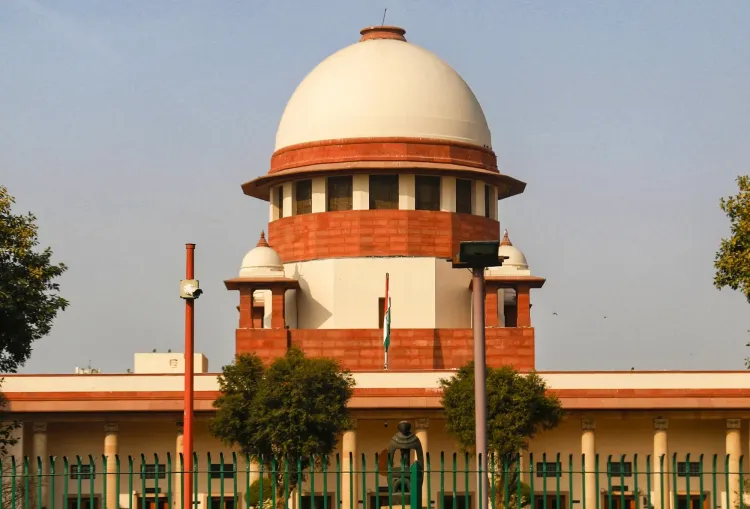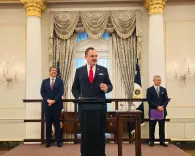Did the SC Collegium Recommend the Appointment of Five New HC Chief Justices?

Synopsis
Key Takeaways
- Supreme Court Collegium recommended five new Chief Justices.
- Justice Sanjeev Sachdeva appointed as Chief Justice of Madhya Pradesh HC.
- Justice Vibhu Bakhru suggested for Chief Justice of Karnataka HC.
- Justice Ashutosh Kumar to lead the Gauhati HC.
- Justice Vipul Manubhai Pancholi recommended for Patna HC.
- Justice Tarlok Singh Chauhan appointed for Jharkhand HC.
New Delhi, May 26 (NationPress) The Supreme Court Collegium has made significant recommendations to the Centre regarding the appointments of Chief Justices for the High Courts of Madhya Pradesh, Karnataka, Gauhati, Patna, and Jharkhand.
Led by Chief Justice of India (CJI) BR Gavai, the SC Collegium has proposed that Justice Sanjeev Sachdeva be appointed as the Chief Justice of the Madhya Pradesh High Court.
Recently, the Centre announced the appointment of Justice Sachdeva as Acting Chief Justice of the Madhya Pradesh HC following the retirement of Chief Justice Suresh Kumar Kait on May 23.
A notification from the Union Ministry of Law and Justice dated May 22 stated, "In exercise of the power conferred by Article 223 of the Constitution of India, the President is pleased to appoint Shri Justice Sanjeev Sachdeva, Judge of the Madhya Pradesh High Court, to perform the duties of office of the Chief Justice of that High Court with effect from 24.05.2025 consequent upon the retirement of Shri Justice Suresh Kumar Kait, Chief Justice, Madhya Pradesh High Court on 23.05.2025."
On the same day, the Collegium also recommended Justice Vibhu Bakhru of the Delhi High Court for the position of Chief Justice of the Karnataka High Court.
Current Chief Justice of Karnataka HC, Justice N.V. Anjaria, is proposed to be appointed as a Judge of the Supreme Court.
Moreover, the Collegium has recommended that Justice Ashutosh Kumar of the Patna High Court be appointed as Chief Justice of the Gauhati High Court, with the current Chief Justice Vijay Bishnoi being elevated to the Supreme Court.
The SC Collegium also resolved to recommend Justice Vipul Manubhai Pancholi as Chief Justice of the Patna High Court and Justice Tarlok Singh Chauhan, currently in the Himachal Pradesh High Court, as Chief Justice of the Jharkhand High Court, following the transfer of the incumbent Chief Justice M.S. Ramachandra Rao.










